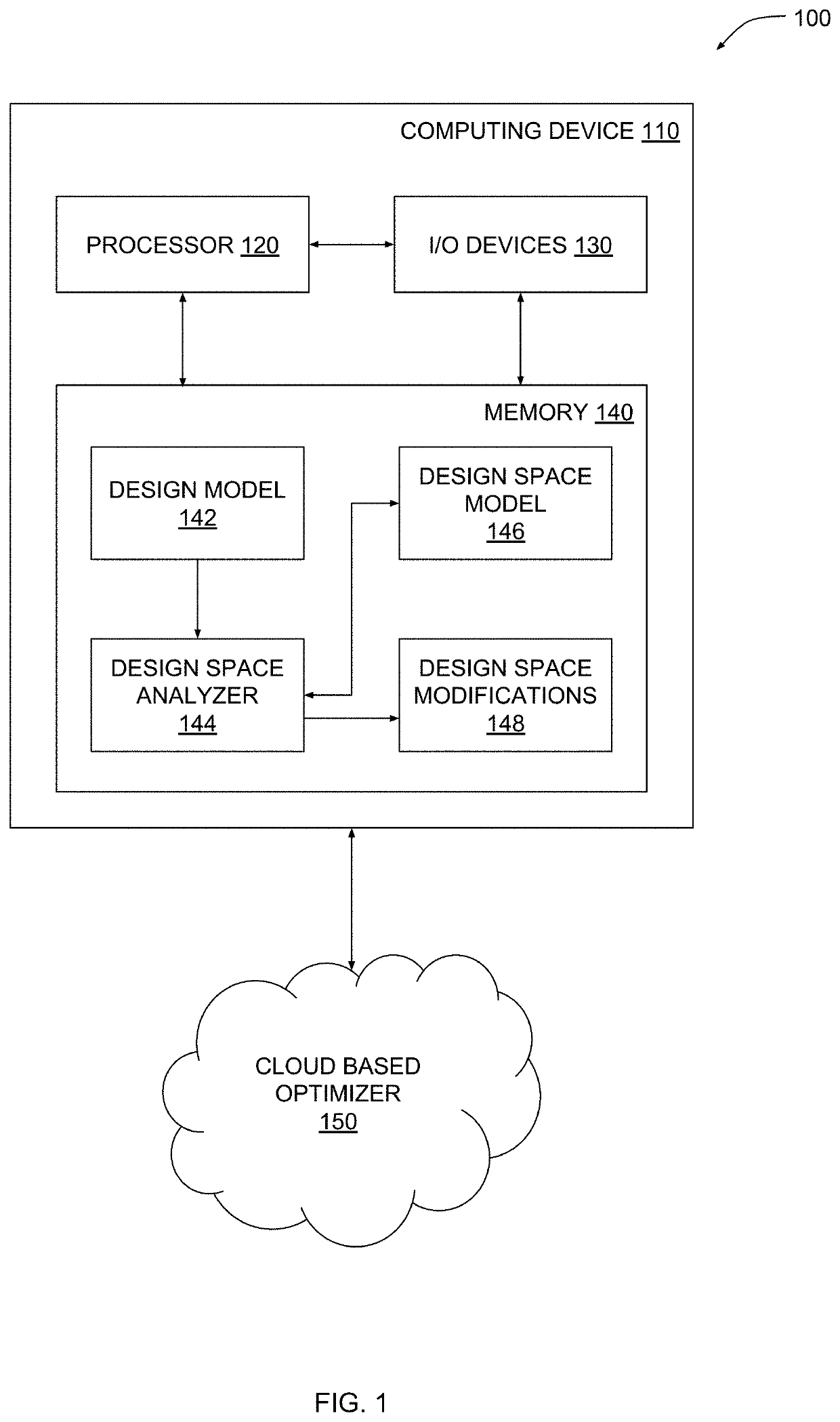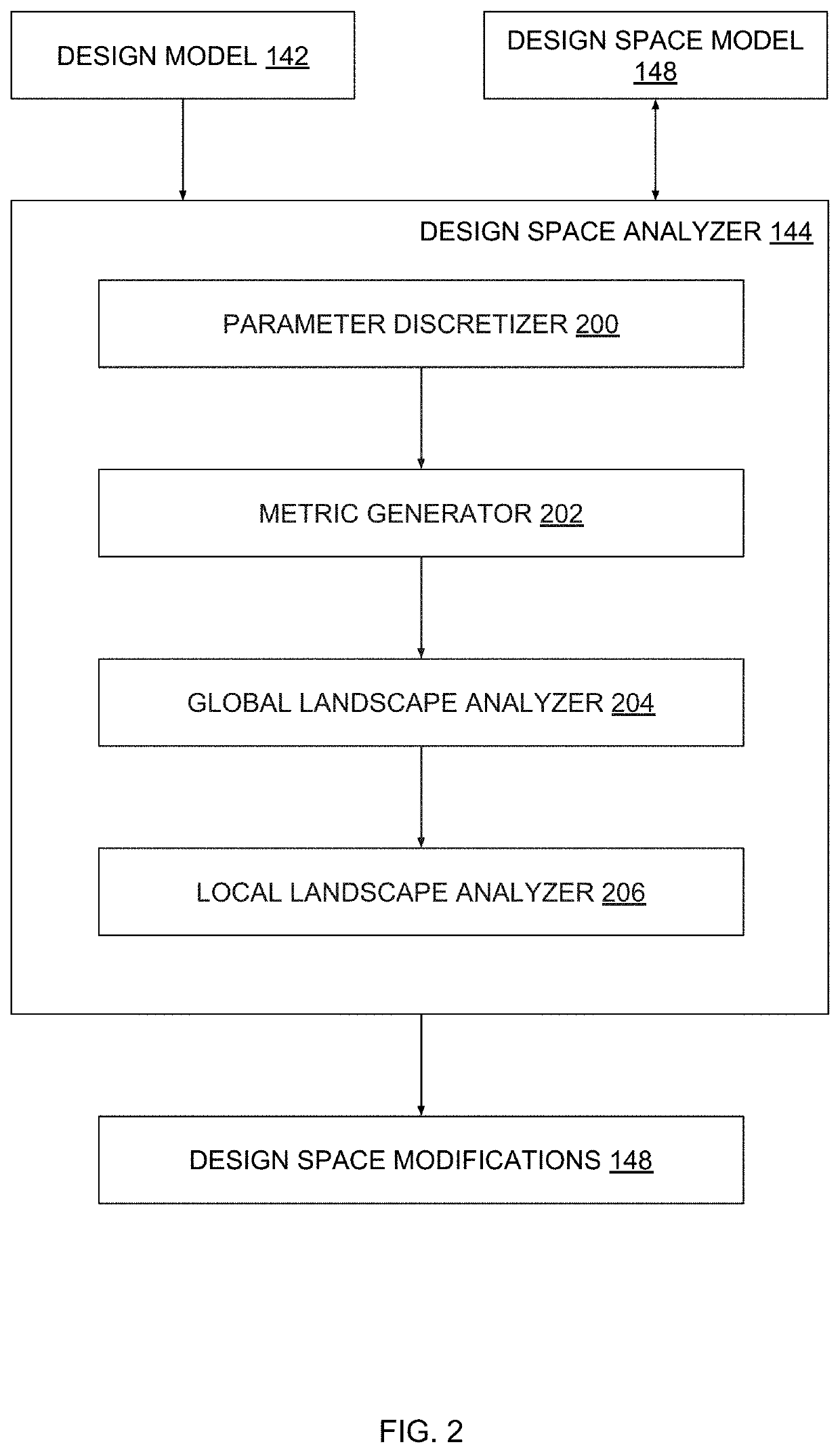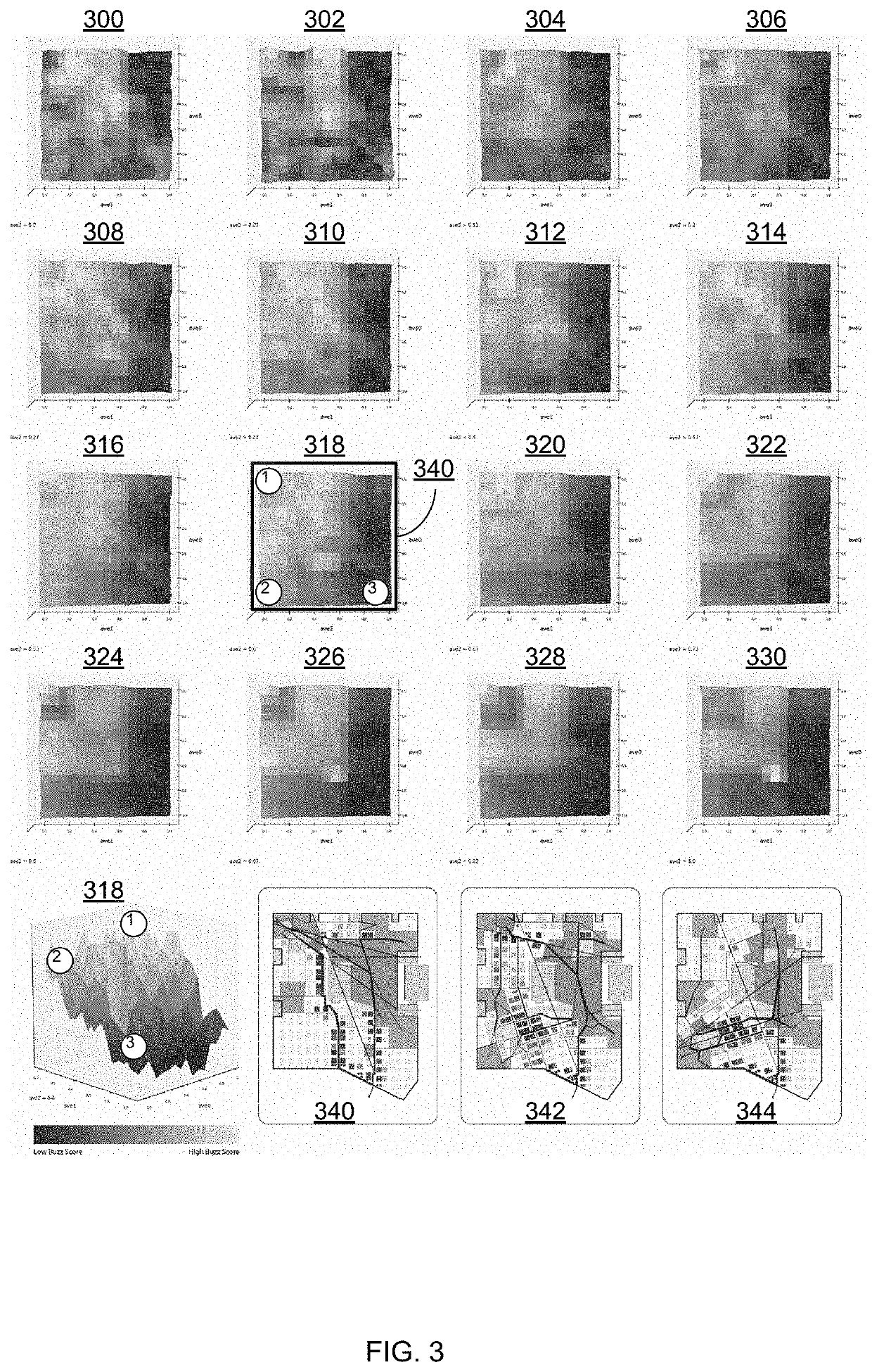Analyzing a design space to effect more efficient design space exploration
a design space and design technology, applied in the field of computer-aided design, can solve the problems of excessive computational resources of conventional optimization algorithms, and achieve the effect of reducing the amount of computational resources needed
- Summary
- Abstract
- Description
- Claims
- Application Information
AI Technical Summary
Benefits of technology
Problems solved by technology
Method used
Image
Examples
Embodiment Construction
[0002]The various embodiments relate generally to computer-aided design and, more specifically, to analyzing a design space to effect more efficient design space exploration.
Description of the Related Art
[0003]In a conventional design optimization workflow, a designer first generates a parametric model associated with a particular design problem that needs to be solved. The parametric model defines specific parameters that typically vary across the various candidate designs generated to address the design problem. The design space associated with the design problem includes all possible combinations of each of the different parameters. The designer also can generate one or more metrics that quantify particular characteristics of candidate designs that should be maximized or minimized. Finally, the designer configures an optimization algorithm to search the design space, using the one or more metrics for guidance, to generate multiple feasible design options that solve the design pro...
PUM
 Login to View More
Login to View More Abstract
Description
Claims
Application Information
 Login to View More
Login to View More - R&D
- Intellectual Property
- Life Sciences
- Materials
- Tech Scout
- Unparalleled Data Quality
- Higher Quality Content
- 60% Fewer Hallucinations
Browse by: Latest US Patents, China's latest patents, Technical Efficacy Thesaurus, Application Domain, Technology Topic, Popular Technical Reports.
© 2025 PatSnap. All rights reserved.Legal|Privacy policy|Modern Slavery Act Transparency Statement|Sitemap|About US| Contact US: help@patsnap.com



